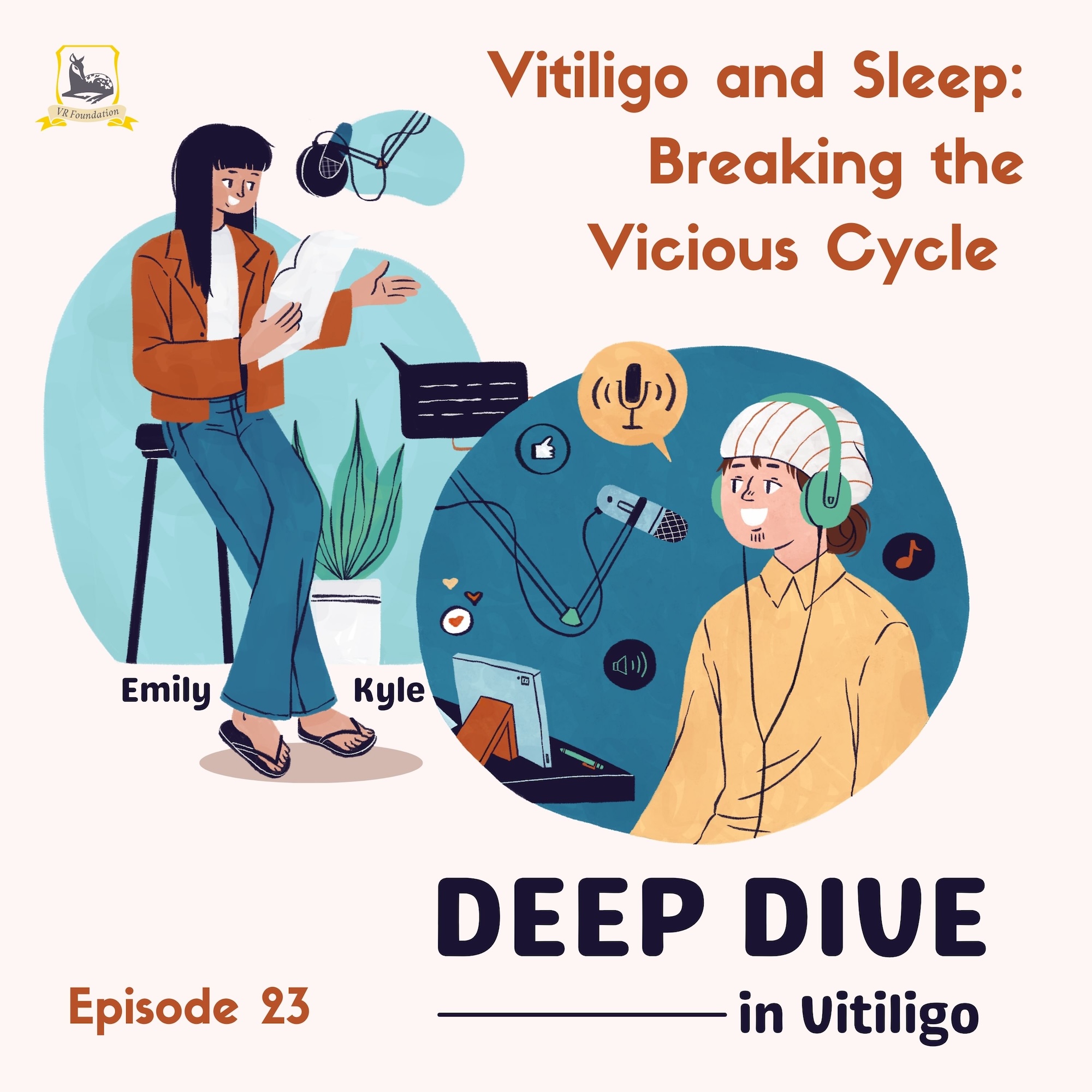Our work is entirely funded by private donations – we receive no money from government. Your money will help us continue funding research into vitiligo and supporting people affected by the condition.
Podcast
Vitiligo and Sleep: Breaking the Vicious Circle (Ep. 23)
Vitiligo is more than a skin condition—it affects identity, confidence, and emotional well-being. The stress and anxiety linked to vitiligo can disrupt sleep, creating a cycle of restlessness and fatigue. High cortisol levels from stress interfere with the sleep-wake cycle, while autoimmune inflammation and emotional distress worsen insomnia.
But what if breaking that vicious cycle could improve both mental health and skin healing?
In this episode of Deep Dive in Vitiligo, we explore how stress, inflammation, and mental health challenges contribute to poor sleep in people with vitiligo—and how we can fix this.
Join us as we uncover practical strategies to restore restful nights and regain control—not just over your skin but over your well-being, too.
Suggested reading:

FAQOther Questions
- Shall I take vitamin D for my vitiligo?
Vitamin D plays a central role in the prevention of different inflammatory and chronic diseases. Consuming 1,000–4,000 IU (25–100 mcg) of vitamin D3 daily should be ideal for mo...
- Are there any famous people with vitiligo?
Many celebrities have dealt with vitiligo while remaining in the public eye, maintaining a positive outlook, and having a successful career. Here are a few courageous famous peo...
- Can Ginkgo Biloba help with vitiligo?
Ginkgo Biloba offers a promising, simple, and relatively affordable option for managing vitiligo. Known for its anti-inflammatory, immunomodulatory, and antioxidant properties, ...
Though it is not always easy to treat vitiligo, there is much to be gained by clearly understanding the diagnosis, the future implications, treatment options and their outcomes.
Many people deal with vitiligo while remaining in the public eye, maintaining a positive outlook, and having a successful career.
Copyright (C) Bodolóczki JúliaBy taking a little time to fill in the anonymous questionnaire, you can help researchers better understand and fight vitiligo.